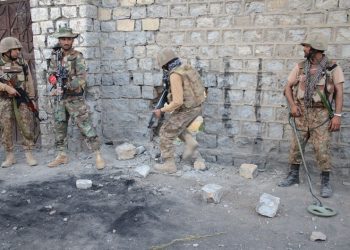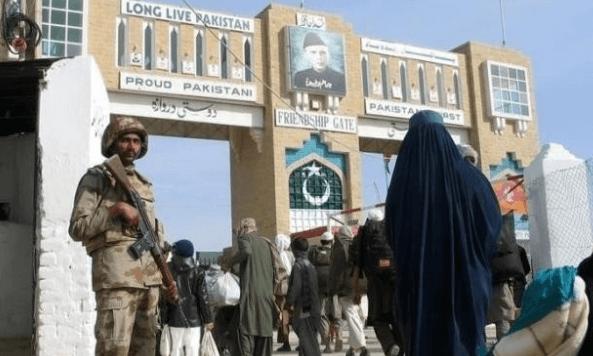Patron-in-Chief of Jamiat-ul-Rashid and Chancellor of Al-Ghazali University, Mufti Abdul Rahim, stated that the solution to the challenges facing our country lies in the integration of religious and contemporary education. He said this while addressing to media persons on Thursday at main campus of Al-Ghazali University.
He further emphasized that there is no distinction between religion and worldly life. Jamiat-ul-Rashid has bridged the gap between religious and contemporary education. In addition to religious studies, 30 percent of the curriculum is dedicated to contemporary education, while 30 percent of religious education is integrated with modern subjects, aiming to address the shortcomings in both areas.
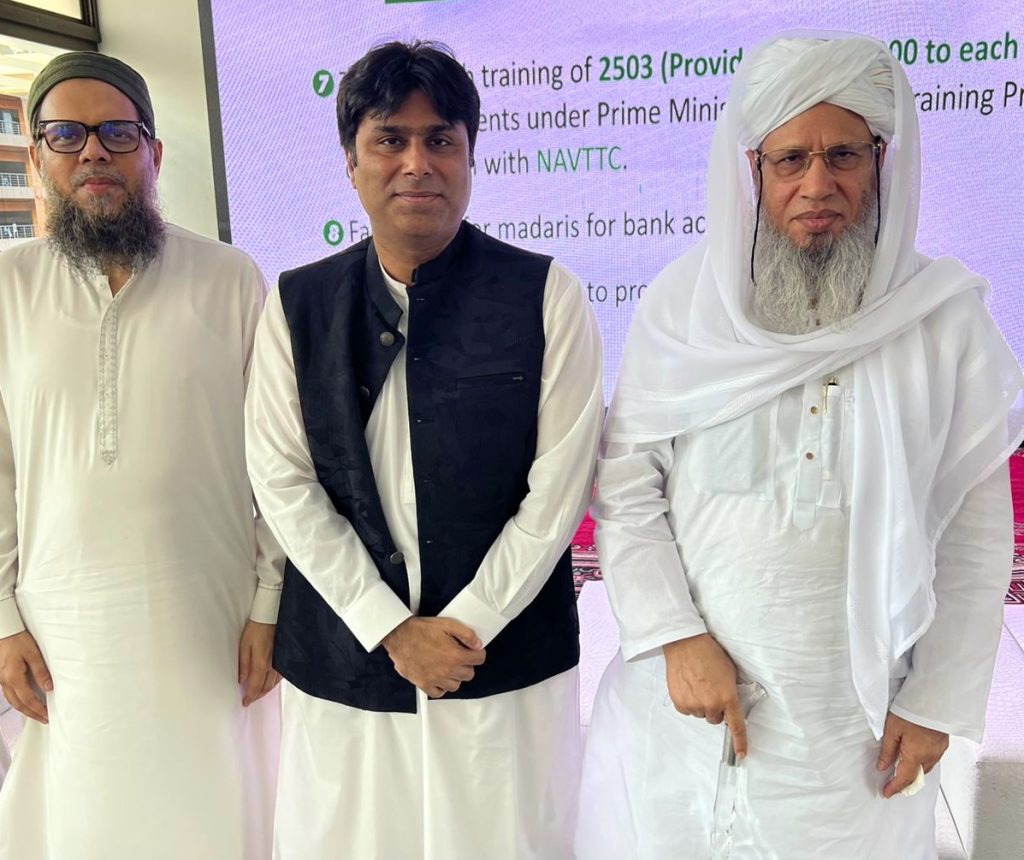
“Reforming the education system is critical to addressing the country’s broader challenges. For the first time, madrassas have been brought under the Ministry of Education, a move that has brought significant benefits, including streamlined registration processes “. He said and added further “according to officials, over 18,000 madrassas, accommodating 2.286 million students, have been registered so far. Additionally, the ministry has distributed modern education textbooks to more than 100,000 students, enhancing access to contemporary learning resources”.
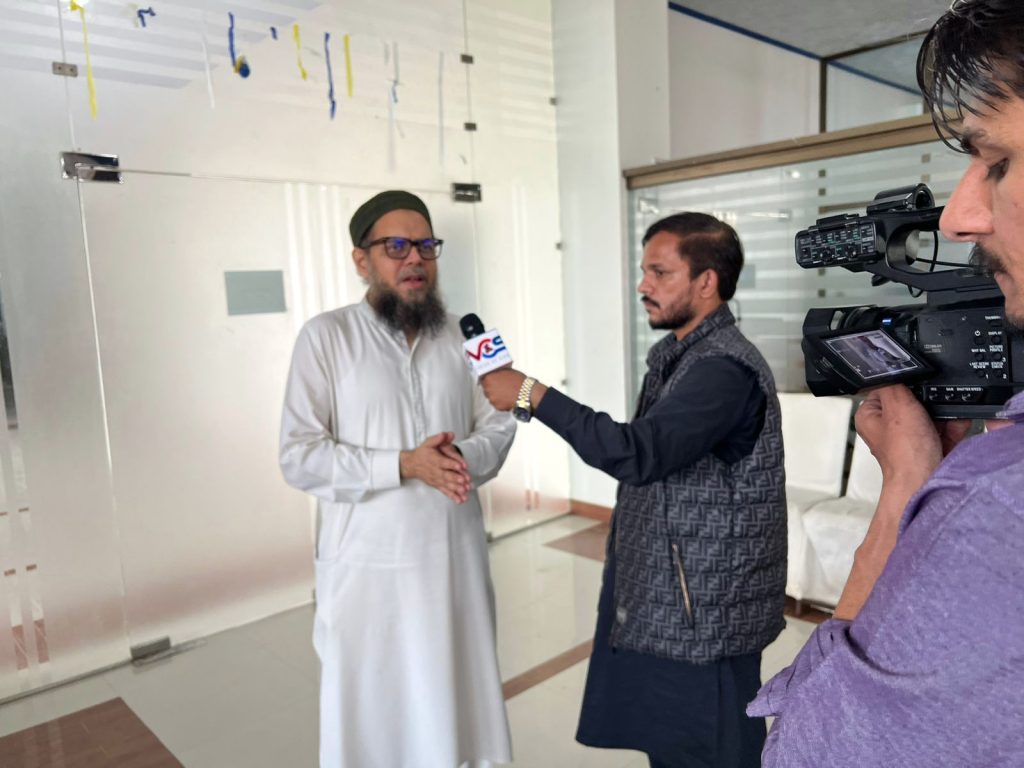
Mufti Abdul Rahim said it has also become easier for foreign students to obtain visas for religious education, an official stated, adding that “so far, more than 1,600 foreign students have come to Pakistan to pursue religious studies.” The Ministry of Education has initiated professional skills training for madrassa students. “A total of 2,503 students have received Prime Minister Youth Skills Training through the ministry, with Rs. 75 million distributed to help students acquire skills and start practical work,” he said.
He also emphasized that if government to abolish this current system it will forcing 18,000 madrassas students to protest and take to the streets. He also pointed out reforms by Jamiatul Rashid, stating, “In addition to Dars Nizami, four international languages Arabic, English, Turkish, and Chinese are taught, along with information technology courses.”
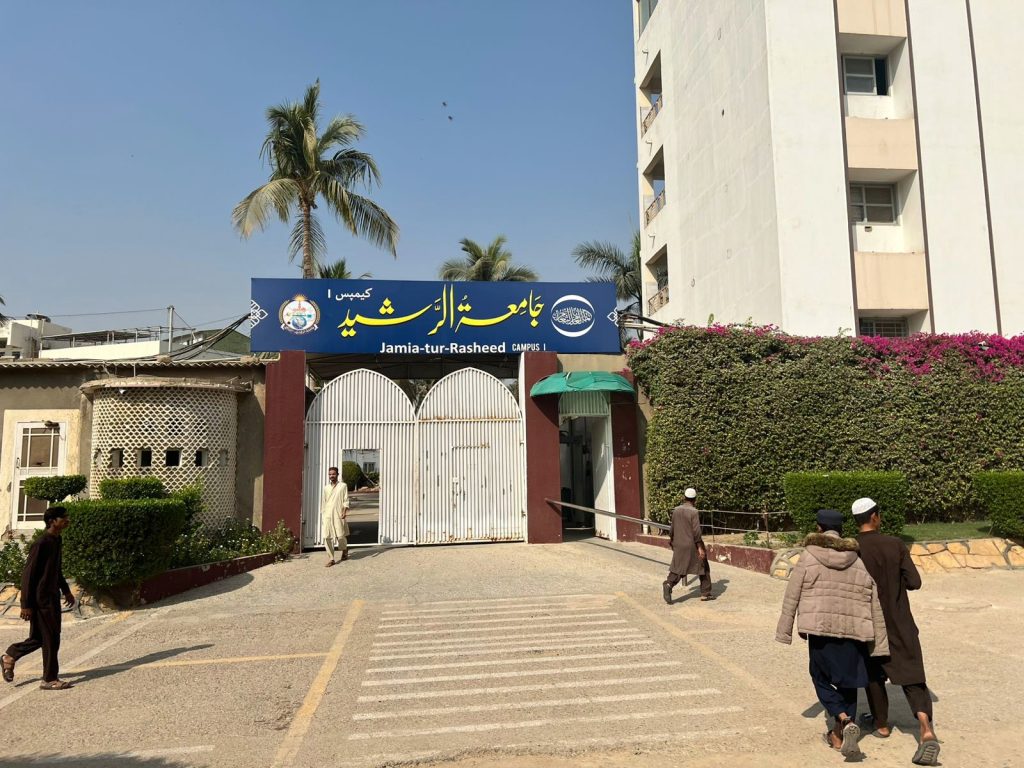
Chancellor further explained its educational system based on ten key topics. These include “fostering love for the country, viewing the nation’s losses as personal, promoting unity, minimizing political and religious divisions, and maintaining national discipline.” He added, the curriculum also emphasizes fulfilling the rights of the state, ensuring the state upholds citizens’ rights, serving others selflessly, working diligently, and striving to build a skilled and talented nation.” Additionally, the system encourages “adopting self-sufficiency at both personal and national levels to reduce dependency on others.”
Addressing media personnel, he urged caution in reporting. “We must prioritize the country’s interests, even in the race for breaking news. If state institutions are not protected, the country itself will face danger,”.
Speaking to a delegation, Vice Chancellor of Al-Ghazali University, Dr. Zeeshan Ahmed, stated that with aim to bridge the gap between religious and contemporary education Al-Ghazali University will mainstream the sciences of scholars.
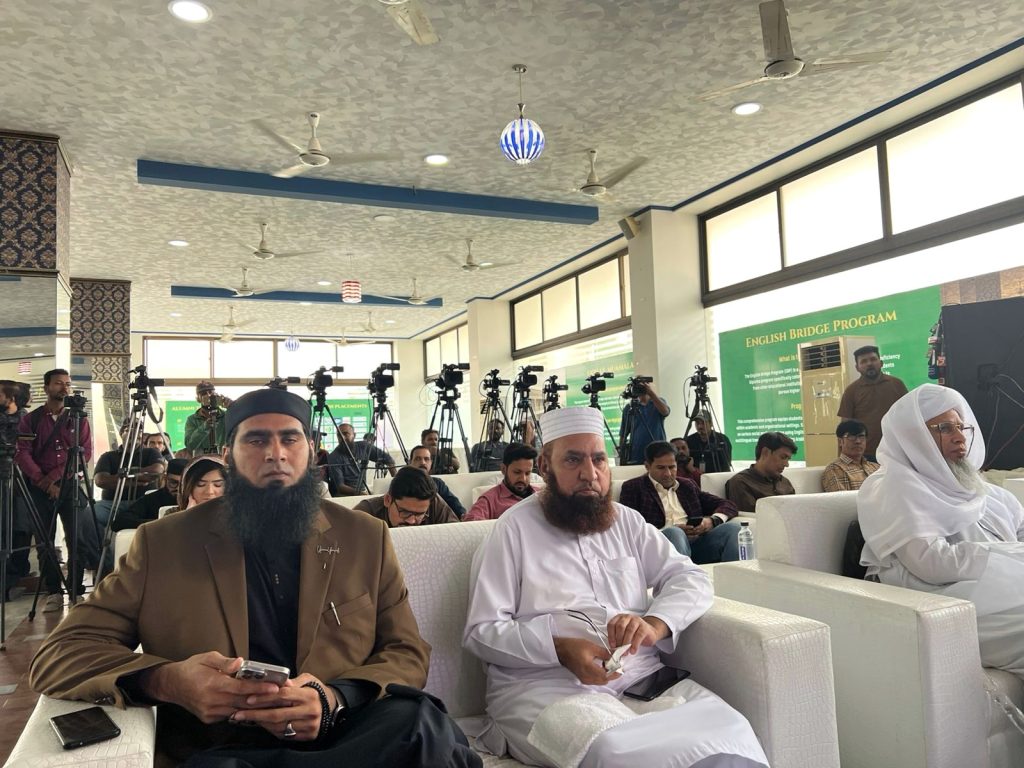
Dr. Ahmed highlighted several programs launched at the university, including BS Islamic Studies, BS Education, and BS Islamic Finance, alongside ongoing classes in Hadith and the Faculty of Sharia as part of the MS Islamic Studies program. We have also introduced MS Islamic Banking and Finance and a weekend MS Islamic Studies program for scholars, with hundreds of students already enrolled, he added.
He further noted that the city campus in Korangi, established under the name GU Tech, is now operational. “The campus offers programs such as BBA, BS Computer Science, and MS Islamic Banking and Finance for professionals,” he explained.
General Secretary of Majma’ul Uloom Al-Islamia, Mufti Muhammad, addressed the media, while Maulana Usman Yousuf, representing the organization, delivered a detailed presentation on its initiatives.
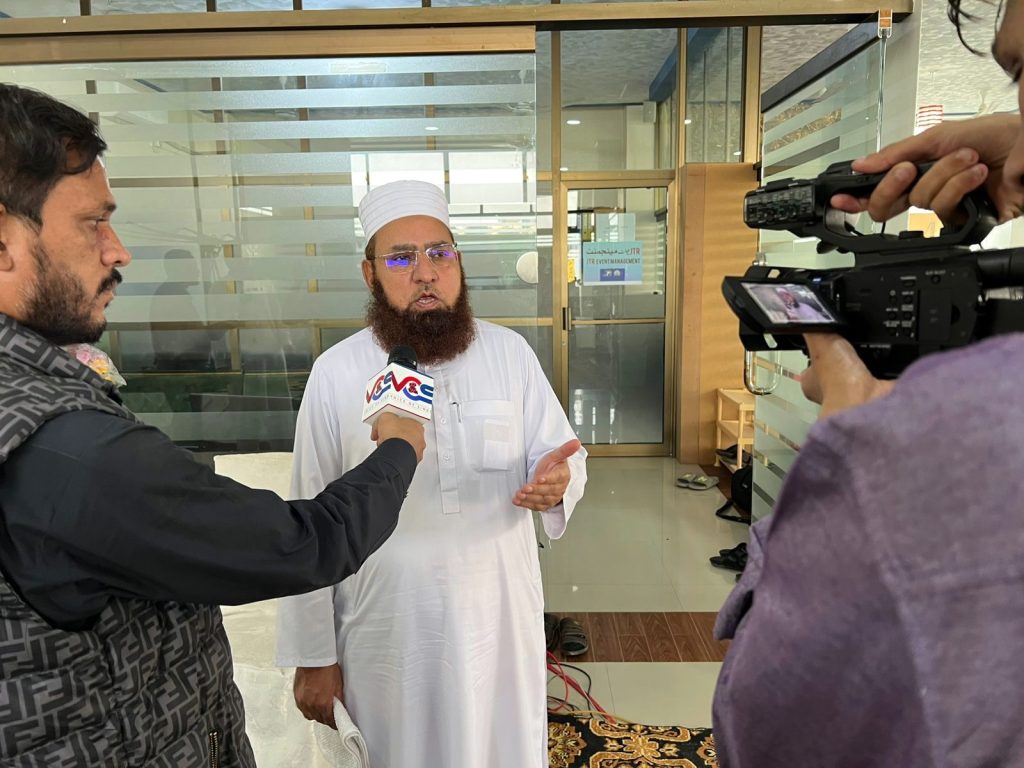
At the conclusion of the event, Voice of Sindh Project Director Dr. Umair Haroon’s question stood out, earning appreciation from the administration. His contributions were also praised for their significance.
Journalists visited various departments at Jamiat-ul-Rashid which included visits to the Darul-Ifta Jamiat-ul-Rashid, the central office of Majma’ul-Uloom Islamia, JTR Media House, the Department of Fiqh al-Ma’alimat Islamia, the Faculty of Sharia, Fiqh al-Halal, and the Al-Manai Association. They were also shown video documentaries introducing the education system of Jamiatul Rashid.











































